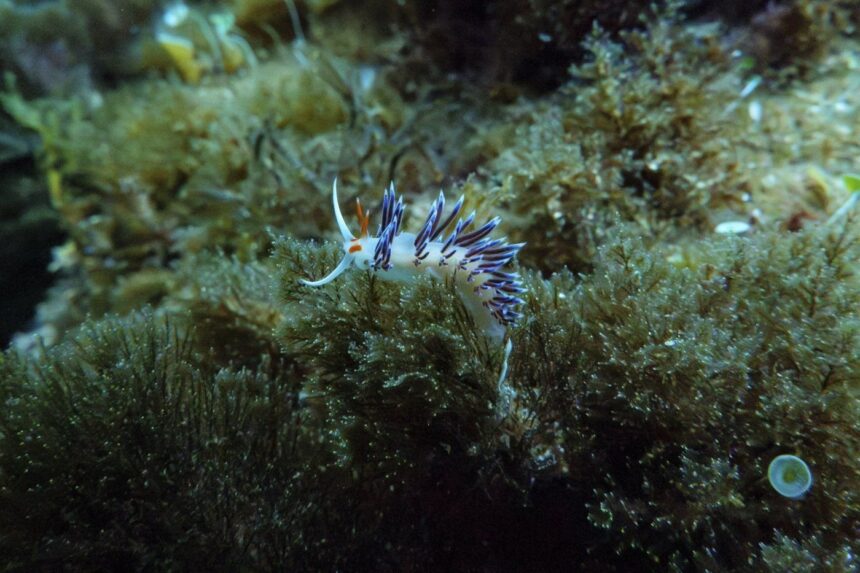As the misty morning light breaks over Nice’s Promenade des Anglais, thousands of delegates, scientists, and advocates filter into the Palais des Congrès for what French President Emmanuel Macron has called “a final opportunity to rescue our oceans from the brink.” The fourth UN Ocean Conference opens today with a distinctly urgent tone—perhaps because three years after the Lisbon conference, many promises remain just that: promises.
“We have gathered for decades to discuss ocean protection, but our waters are warming faster than ever,” says Macron in his opening address. “France will not accept more delays or empty commitments.”
This urgency isn’t merely political posturing. When I visit the conference’s science pavilion, oceanographer Dr. Sylvie Moreau shows me real-time data on her tablet. “The Mediterranean has warmed nearly 0.4°C since the last conference alone,” she explains, pointing to a heat map glowing ominously red around the very coastline visible through the windows. “This isn’t abstract anymore. The fishermen here can tell you their catches have changed dramatically.”
The conference, running June 9-13, has drawn representatives from 193 countries alongside thousands of NGOs, Indigenous delegates, and private sector participants. But the atmosphere feels different from previous gatherings—less celebratory, more determined.
Canada’s delegation, led by Fisheries Minister Joyce Murray, arrives with what she calls “action-backed commitments” following criticism that the country’s ocean protection targets have relied too heavily on paper designations rather than enforced conservation.
“We’ve protected 14.6% of our oceans on paper, but the actual monitoring and enforcement has been inadequate,” admits Murray in a surprisingly candid corridor conversation. “This time we’re focusing on implementation funding, not just boundary-drawing.”
The conference’s main agenda revolves around implementing Sustainable Development Goal 14: “Life Below Water,” which most countries are drastically behind on achieving. Key discussions include establishing a timeline for the recently ratified High Seas Treaty, finalizing the 30×30 framework (protecting 30% of oceans by 2030), and creating binding commitments on plastic pollution following the UN Plastics Treaty.
Walking through the Indigenous Peoples’ Pavilion reveals perspectives often missing from the policy debates. Nunavut fisher and knowledge keeper James Eetoolook explains to a small gathering, “When southern politicians talk about ocean protection, they’re thinking about boundaries on maps. For us, protection means relationship and reciprocity—you take only what you need, you give thanks, you ensure the cycle continues.”
His hands, weathered from decades hauling nets in Arctic waters, gesture toward a digital display showing traditional Inuit sea ice knowledge systems. “Our communities have managed ocean resources for thousands of years. Now they tell us our ways need to be ‘validated’ by science before they’ll listen.”
The conference arrives at a critical juncture. The latest Intergovernmental Panel on Climate Change special report on oceans, released just weeks before the conference, reveals that marine heatwaves have doubled in frequency since 1993, while ocean acidification continues to accelerate beyond previous models’ predictions.
“We’re not just losing pretty corals,” explains marine biologist Dr. Josephine Chen during an oceanside workshop where participants dip testing strips into the Mediterranean. “We’re disrupting the base of food chains that support billions of people. Nearly 40% of humanity depends directly on healthy oceans for protein.”
The economic stakes are equally sobering. A World Bank representative presents data showing ocean-based industries generate over $2.5 trillion annually—equivalent to the world’s seventh-largest economy—while supporting over 40 million jobs directly. “Each year of inaction costs us approximately $200 billion in reduced ecosystem services,” says economist Marco Lambertini.
What’s different this year is how central the voices of small island nations have become. Marshall Islands negotiator Amata Kabua receives a standing ovation after delivering an impassioned speech linking ocean health directly to national survival.
“For us, ocean conservation isn’t an environmental issue—it’s existential,” Kabua tells me later. “We’ve come with clear demands: full implementation of the High Seas Treaty by 2026, not 2030; immediate funding for loss and damage from ocean warming; and binding targets on plastic pollution with enforcement mechanisms.”
Behind the public sessions, tensions emerge around financing. Developed nations argue they’re already contributing billions, while developing countries point to studies showing that actual ocean conservation funding falls short of pledges by roughly 70%. The Green Climate Fund has allocated just 3% of its portfolio to ocean-specific projects since its inception.
“We keep hearing about ‘innovative financing mechanisms,'” says Brazilian delegate Marina Santos. “But innovation without implementation is just another delay tactic.”
The private sector presence is notable, with major shipping companies, tourism giants, and even tech firms hosting side events. Ocean conservation has become big business, raising questions about whether profit motives can align with protection goals.
Microsoft unveils “Ocean Data Commons,” an artificial intelligence platform that will process satellite imagery to track illegal fishing, while Norwegian energy company Equinor announces a billion-dollar initiative to develop offshore wind arrays that double as marine sanctuaries.
Some civil society observers remain skeptical. “Corporate greenwashing has evolved,” says Greenpeace oceans campaign director Louisa Casson. “Now they speak our language perfectly while still prioritizing extraction over regeneration.”
As the conference’s first day ends, delegates spill out onto Nice’s famous waterfront where the Mediterranean—the very water body they’re discussing protecting—laps gently against the shore. The irony isn’t lost on anyone that this sea has lost 41% of its marine mammals in just 50 years.
“We know what to do,” says Jane Lubchenco, former US ocean administrator, watching the sunset over waters that appear deceptively pristine. “The science is clear. The economics make sense. What’s missing is political courage and genuine accountability.”
The conference continues through Friday, with major announcements expected on Wednesday regarding a unified ocean monitoring system and Thursday’s high-level segment focusing on finance commitments.
Whether this gathering will finally translate decades of ocean promises into meaningful protection remains to be seen. But as Tuvalu’s Prime Minister reminds the assembly, “The ocean remembers what we do, not what we say.”






